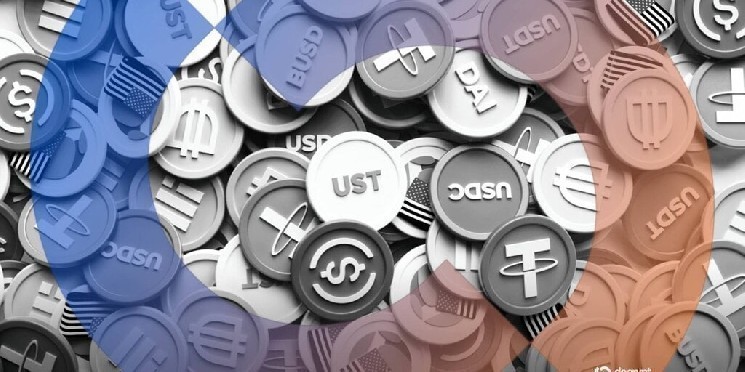South Korea's central bank warns against won-denominated currency stable coinwarned that private issuers lacked the institutional trust needed to maintain a stable currency and urged traditional banks to take the lead instead.
The Bank of Korea (BOK) released a report on Monday outlining the key risks associated with won-fixed stablecoins, comparing them to historical currency failures from the free banking era in the mid-19th century in the United States to South Korea's Baekjeon Crisis during the Gojong era.
“Currencies operate on trust, not technology,” the report says, challenging proponents who believe blockchain innovation alone can ensure stability.
Depeg concerns
The Bank of Korea's main concerns center on “depegging risk,” or the frequent violation of a stablecoin's promise to maintain a one-to-one value with the underlying currency.
Citing the collapse of Terra/Luna, the report states, “An algorithm that promised to maintain '1 coin = 1 dollar' collapsed in just a few days, and countless investors lost their assets overnight.”
The bank noted that even major dollar-pegged coins are vulnerable, citing the drop in USDC to $0.88 during the Silicon Valley banking crisis, which caused several crypto companies to go into emergency mode.
The central bank said concerns about non-dollar-denominated stablecoins with limited circulation were “particularly acute,” and even euro-pegged stablecoins backed by the second largest reserve currency were “particularly vulnerable.”
Despite the warning, the Bank of Korea noted that it is “not trying to prevent innovation, but rather pursues safe and sustainable innovation.”
“When discussing won-denominated stablecoins that aim to become a new currency, the first question to ask is not 'Is the technology feasible?'” but “Is it trustworthy?” ''' the report added.
In September, digital asset management company BDACS partnered with Woori Bank to launch KRW1, the country's first fully regulated won-backed stablecoin. Stable coins are avalanche Blockchain was chosen in part because of its rating by the Korea Internet Security Agency for its “trustworthiness of public sector applications.”
Bank-first approach
The Central Bank of Korea says private issuers must have a high level of “public nature” and establish institutional mechanisms to offset losses if the promise that “one coin is equal to one won” is broken.
“Promises cannot be kept if the issuer fails to adequately hold reserve assets, or if the value of reserve assets declines due to risky investments,” the report said, highlighting the risks of private sector issuance without appropriate safeguards.
The report calls for interagency coordination on stablecoin policy, while promoting Project Hangang, a pilot run of deposit tokens issued by the Bank of Korea. blockchain infrastructure.
In June, Ryu Sang-tae, vice president of the Bank of Korea, stated that given the rapid increase in transactions and the huge outflow of stablecoins overseas, it would be desirable to “initially allow stablecoins to be issued mainly through banks” and then “gradually expand” to non-banks.
In September, the ruling Democratic Party launched a “Digital Asset Task Force” and pledged to pass a stablecoin bill by the end of the year to “protect South Korea's monetary sovereignty.”
“Even as the world moves toward a technology-backed ‘trustless’ or ‘permissionless’ on-chain economy, Korean banks are still stuck in an outdated framework of ‘trust,’” said Rich O., APAC regional manager at OneKey. decryption.
He added: “Many people in South Korea are not surprised that the Bank of Korea is sticking to this position, but the confidence and value of fiat currencies has already begun to gradually disintegrate, as evidenced by the recent price spikes in gold, BTC, S&P500, and even KOSPI.”
Rich O. added that since South Korea is “not included anywhere in the global value chain,” “KRW stablecoin is the only opportunity” for South Korea to enter there.

